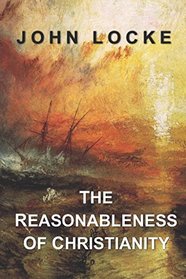Search -
The Reasonableness of Christianity
The Reasonableness of Christianity
Author:
John Locke (29 August 1632 ? 28 October 1704) was an English philosopher and physician, widely regarded as one of the most influential of Enlightenment thinkers and commonly known as the "Father of Liberalism". Considered one of the first of the British empiricists, following the tradition of Sir Francis Bacon, he is equally important to social ... more »
Author:
John Locke (29 August 1632 ? 28 October 1704) was an English philosopher and physician, widely regarded as one of the most influential of Enlightenment thinkers and commonly known as the "Father of Liberalism". Considered one of the first of the British empiricists, following the tradition of Sir Francis Bacon, he is equally important to social ... more »
ISBN-13: 9781521819227
ISBN-10: 152181922X
Publication Date: 7/11/2017
Pages: 467
Rating: ?
ISBN-10: 152181922X
Publication Date: 7/11/2017
Pages: 467
Rating: ?
0 stars, based on 0 rating
Publisher: Independently published
Book Type: Paperback
Members Wishing: 0
Reviews: Amazon | Write a Review
Book Type: Paperback
Members Wishing: 0
Reviews: Amazon | Write a Review
Genres:
- Religion & Spirituality
- Christian Books & Bibles >> Bible Study & Reference >> Criticism & Interpretation
- Christian Books & Bibles >> Bible Study & Reference >> History & Culture




